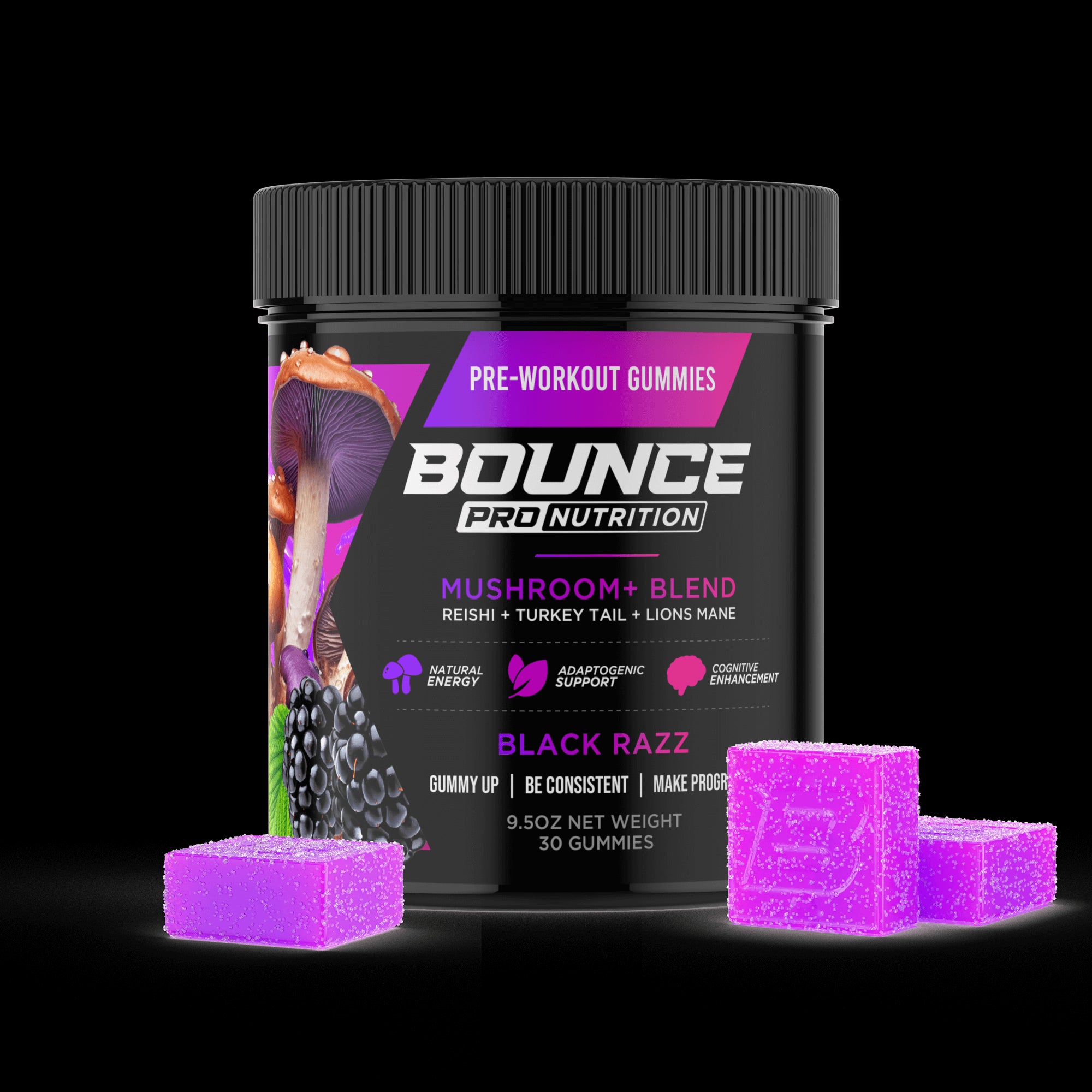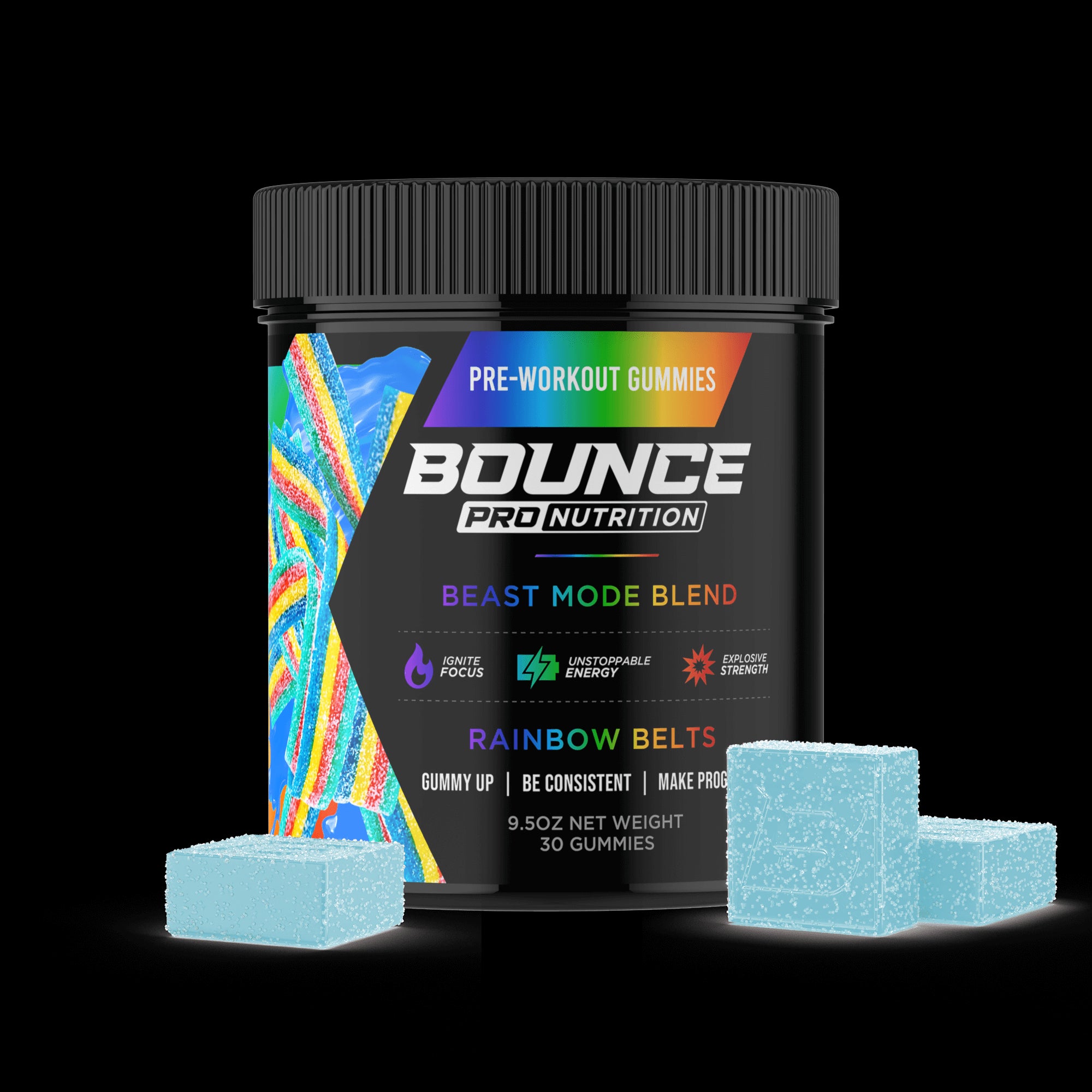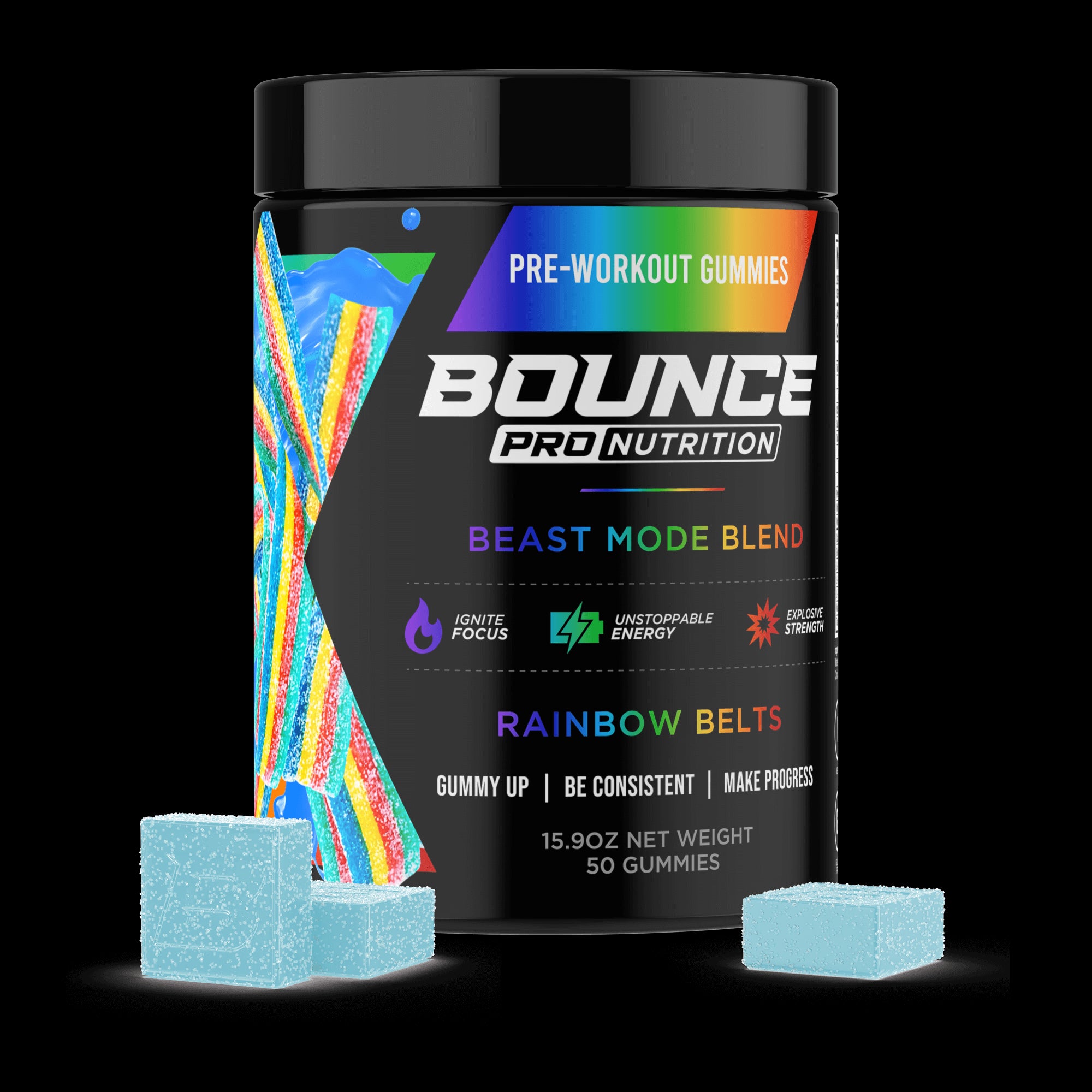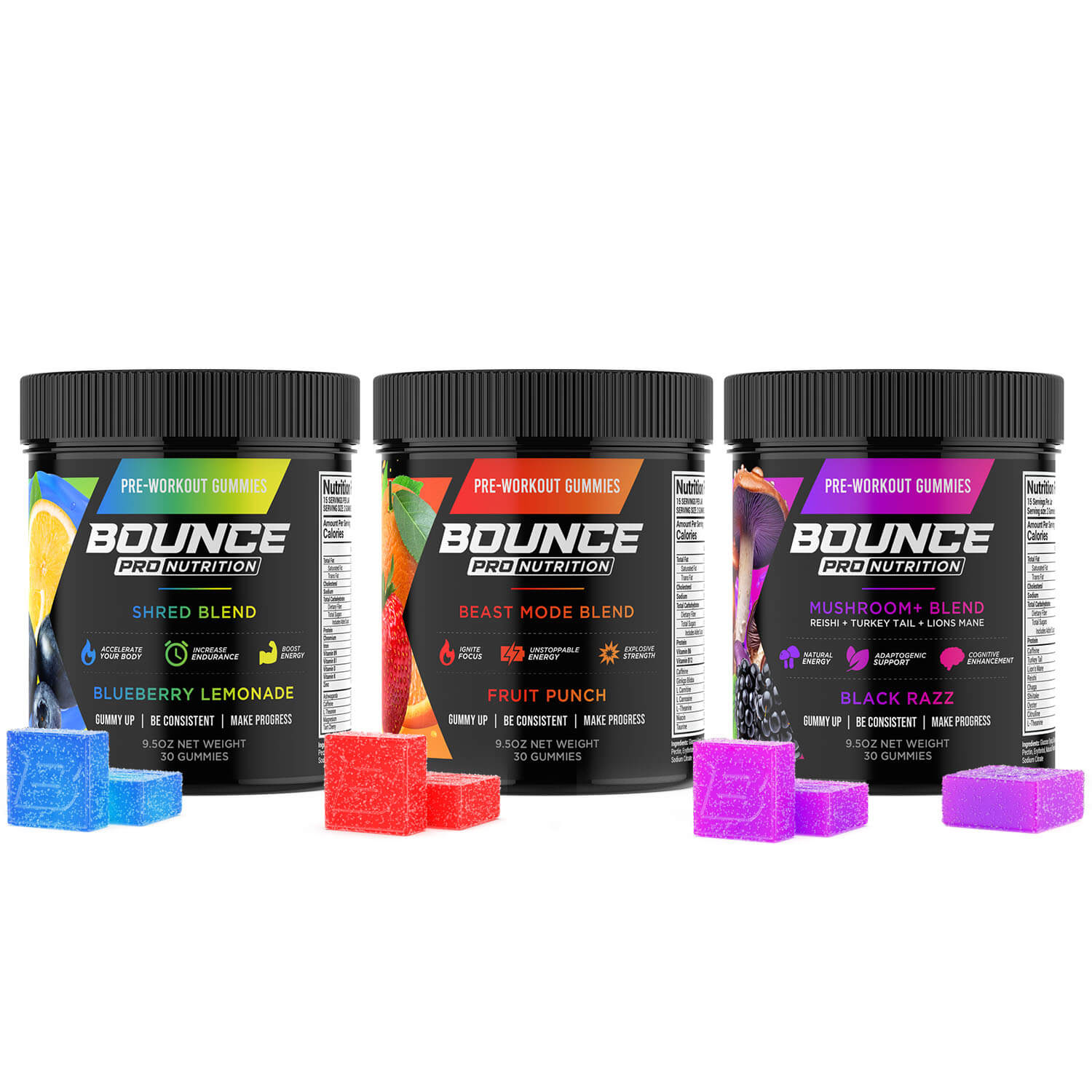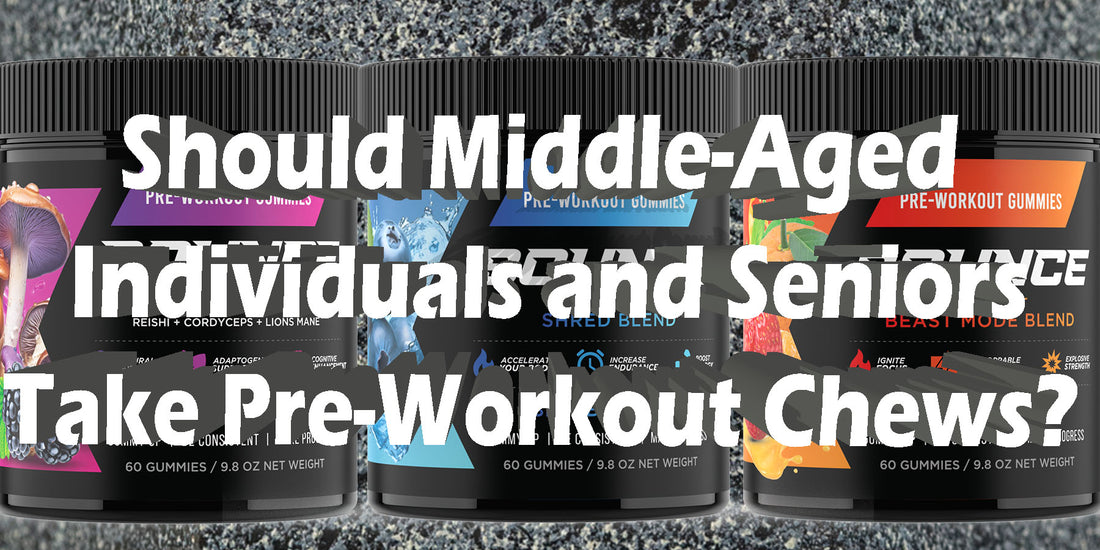In today's world, maintaining an active lifestyle is increasingly recognized as essential for health and well-being, regardless of age. For middle-aged individuals and seniors, staying active can help maintain mobility, enhance mental health, and promote longevity.
However, with the rise of fitness supplements like pre-workout chews, a common question arises: Are these products suitable for older adults? It’s a good question, and today, we’ll be answering this by address the potential benefits and risks of pre-workout chews for middle-aged and senior individuals, while also providing an in-depth look at whether they can be a part of their fitness regimen.
TO BUY PRE-WORKOUT CHEWS CLICK HERE
What are Pre-Workout Chews and What’s in Them?
Before we dive into the key question at hand, let’s take a look at what’s in most pre-workout chews, because that has everything to do with whether or not they’re advisable for people above a certain age.
Pre-workout chews are dietary supplements designed to boost energy, enhance performance, and improve focus during exercise. Keep in mind though, every company that makes pre-workout chews is free to use any combination of chews and slap “pre-workout” on the label. This means that we cannot speak for every single product out there, but there are some ingredients that you’re very likely to find in most of these chews, such as:
- Caffeine: Known for its stimulant effects, caffeine can increase alertness and reduce perceived effort during exercise.
- Beta-Alanine: An amino acid that helps buffer acid in muscles, potentially reducing fatigue and improving endurance.
- Nitrates: Consuming nitrates allows the body to produce nitric oxide, which improves circulation. The result of that is a lower heart rate, more muscle contractions, and improved breathing, all of which can support you while you run. The most commonly used nitrates in pre-workout chews are L-arginine and L-citrulline.
- Creatine: Supports increased muscle mass and strength by replenishing ATP (adenosine triphosphate) stores.
- Branch-Chain Amino Acids (BCCAs): Leucine, isoleucine, and valine can promote muscle protein synthesis and reduce muscle breakdown.
Are Pre-Workout Chews Safe for Middle-Aged People and Seniors?
Generally, pre-workout chews are regarded as safe, when taken properly – that is, according to the directions on the label, as determined by the manufacturer. And, if they can make someone who is older more motivated to work out, and more capable of pushing themselves to stay healthy through a regular fitness routine, then that’s certainly a good thing.
Now, the ingredients above are in many things that people of all ages consume. Take coffee, which has caffeine. Seniors drink coffee all the time, with no ill effects. The same goes for nitrates, which, like we said, are in many vegetables that people of all ages eat on a daily basis.
The tricky part comes when we consider things like underlying health conditions and medications, as the older we get, the more prone we are to these kinds of things. For example, if you’re above a certain age, you’re more likely to develop certain heart conditions that could make certain stimulants, like caffeine, more potentially risky.
Plus, blood thinners, which are prescribed for many conditions that are more common with age, often come with the requirement of cutting down on nitrates, as they can actually thin the blood even more.
Basically, this means that if you’re a middle-aged or senior individual, you’re going to really need to be conscious of your own unique health situation before deciding to take chews.
Safety Considerations for Middle-Aged People
For middle-aged adults, there are some particular considerations:
- Cardiovascular Risks: Ingredients like caffeine can elevate heart rate and blood pressure. If you’ve any heart conditions or cardiovascular risk factors, consult your healthcare provider before using pre-workout supplements.
- Interaction with Medications: If you are taking any medications, especially for heart disease, diabetes, or other chronic conditions common in middle age, some ingredients in pre-workout supplements may interact negatively with those medications.
- Metabolic Effects: Ingredients like sugar and other carbohydrates could have an impact on blood sugar levels.
- Tolerance: As you age, your body may not metabolize substances in the same way it did when you were younger. High levels of certain ingredients could therefore stay in your system for longer periods of time.
- Bone and Joint Health: Some middle-aged people have issues with bone density or joint health. Make sure that the types of exercise you're engaging in are appropriate for your physical condition, regardless of any supplements you may be taking.
Safety Considerations for Seniors
The considerations around the safety of pre-workout chews, or any pre-workout supplements—for seniors are similar to those for middle-aged adults, but generally more heightened due to the increased risk of chronic health conditions and interactions with medications that often come with age. Here are some specific factors that seniors should consider:
- Cardiovascular Risks: Many seniors are on medications for heart health and may have existing cardiovascular conditions. Stimulants like caffeine, commonly found in pre-workout supplements, can have adverse effects on heart rate and blood pressure..
- Interaction with Medications: Many seniors are on medications for a variety of health conditions, including but not limited to cardiovascular diseases, diabetes, and hypertension. The ingredients in pre-workout supplements could potentially interact with these medications in harmful ways.
- Metabolic Changes: Aging affects how the body metabolizes drugs and supplements. What may be a safe dosage for a younger person could be excessive for an older adult.
- Chronic Conditions: The prevalence of chronic conditions such as diabetes, kidney disease, and liver disease increases with age. Some ingredients in pre-workout supplements may exacerbate these conditions.
- Renal Function: Kidney function often declines with age, and some ingredients in pre-workout supplements might be metabolized or excreted by the kidneys.
- Bone and Joint Health: With age comes an increased risk of osteoporosis and joint problems. While this doesn't directly relate to the safety of pre-workout chews, it's an important consideration in the context of the physical activity that the supplements are intended to support.
- Digestive System: Some seniors experience changes in their digestive system that could be affected by supplements, such as a decreased ability to absorb certain nutrients or an increased sensitivity to certain ingredients.
- Cognitive Effects: Stimulants and other ingredients may have different effects on an older brain, including increased risk for anxiety or sleep disturbances.
Pre Workout Chews Recommendations for Middle-Aged and Seniors
As you can see, the safety of pre-workout chews, like all supplements, can vary significantly from person to person and may be influenced by a range of factors. Still, even so, there are some important things you can do in order to make sure the pre-workout chews (or any supplements you take) can work for your specific fitness needs:
- Consult a Healthcare Provider: Given the increased likelihood of having one or more chronic health conditions, and potentially being on medications for those conditions, consulting a healthcare provider before starting any new supplement is crucial.
- Read Labels: Make sure to carefully check the ingredients and their dosages in any supplement. This is particularly important for seniors who may be more sensitive to certain ingredients.
- Start with a Low Dosage: If given the all-clear by a healthcare provider, start with a low dosage to assess tolerance.
- Monitor for Adverse Effects: Pay close attention to any potential side effects, such as dizziness, rapid heartbeat, or digestive discomfort.
- Regular Check-ups: If you decide to continue using pre-workout supplements, regular check-ups are advisable to monitor any long-term effects on your health.
Looks Like Middle-Aged and Senior Individuals Can Take Pre-Workout Chews
The key thing to know is that anyone can take pre-workout chews, in theory, as long as their doctor advises it. There is nothing about these chews that’s inherently less safe for people once they reach a certain age. However, since people are more prone to some fairly common health conditions as they get older, that could have something to do with whether or not it’s safe for you to take certain pre-workout chews – and that’s also true of all kinds of supplements.
Because we want anyone who is taking pre-workout chews to be safe, and get as much out of them as possible, we urge you to consider your own personal health status, and take chews according to the label, no matter what age you are. This way, you will avoid any potential side effects as much as possible, while benefiting from a highly effective fitness regimen.









